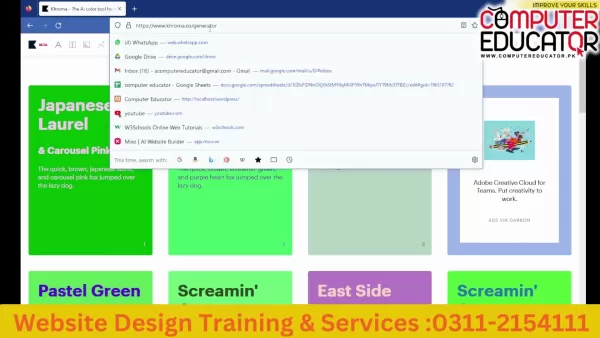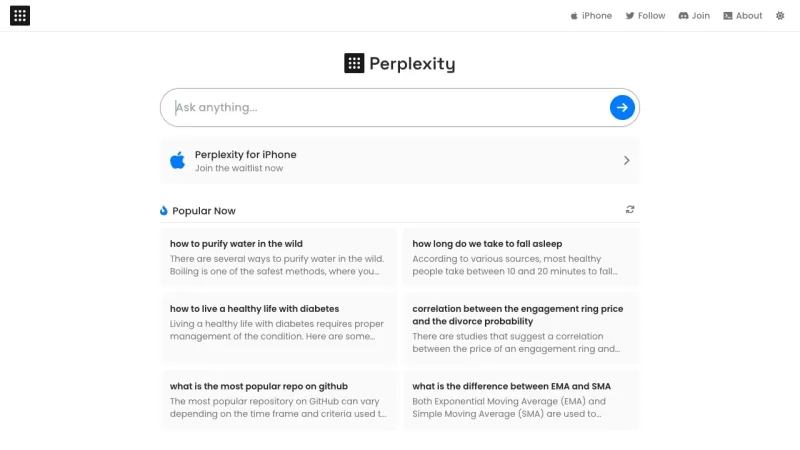Guide to Understanding and Coping with Intense Emotions

 May 4, 2025
May 4, 2025

 AlbertThomas
AlbertThomas

 0
0
Dealing with Overwhelming Emotions: A Journey to Resilience
Intense emotions can hit you like a tidal wave, leaving you feeling like you're drowning in a sea of heartbreak, grief, or anxiety. But learning how to navigate these overwhelming feelings is essential for your mental health. This guide is your lifeline, offering practical strategies to understand, validate, and cope with these emotions, helping you emerge stronger and more resilient.
Key Points to Remember
- It's okay to feel your feelings, no matter how intense they are.
- Reach out to friends, family, or professionals for support.
- Take care of yourself both emotionally and physically during tough times.
- Find healthy ways to cope with overwhelming emotions.
- Remember that intense emotions are fleeting and will pass.
- Challenge negative thoughts and try to see things from a more balanced perspective.
- Give yourself time to heal and process your emotions.
- Practice self-compassion and treat yourself kindly.
- Set boundaries to protect your emotional wellbeing.
- Use mindfulness to stay grounded when emotions feel overwhelming.
Understanding Intense Emotions
What are Intense Emotions?
Intense emotions are those powerful feelings that can take over your thoughts and actions. They can range from sadness and anger to fear, joy, or excitement. Often triggered by significant life events or underlying mental health issues, understanding these emotions is the first step to managing them effectively.

Identifying Your Triggers
To get a handle on your intense emotions, start by figuring out what sets them off. Ask yourself:
- What situations or events usually lead to these feelings?
- Are there specific people or places that trigger strong reactions?
- What thoughts or beliefs are tied to these emotions?
By recognizing your triggers, you can anticipate and prepare for situations that might stir up overwhelming feelings. This awareness gives you the power to manage your emotional responses proactively.
Validating Your Feelings
Your feelings, no matter how intense, are valid. Trying to suppress or ignore them can harm your mental health. Instead, embrace these steps to validate your experiences:
- Acknowledge: Accept your emotions without judgment.
- Identify: Name the emotion you're feeling (e.g., sadness, anger, fear).
- Understand: Recognize that your emotions are a natural response to your situation.
- Allow: Give yourself permission to feel without resistance.
Validating your feelings creates a safe space to process and cope with them healthily, fostering resilience and growth.
The Temporary Nature of Emotions
Remember, intense emotions are temporary. They rise and fall like waves. This ebb and flow can be comforting during tough times. When caught in an emotional storm, remind yourself that the feeling will pass. This perspective can help you stay focused on coping strategies to navigate the storm.
Common Triggers for Intense Emotions
Understanding what triggers your intense emotions can help you manage them better. Common triggers include:
- Relationship Issues: Conflicts, breakups, or loneliness can evoke strong emotions.
- Loss and Grief: The death of a loved one, job loss, or significant life changes can trigger intense sadness.
- Stressful Events: Financial difficulties, work pressures, or family crises can lead to heightened anxiety.
- Past Trauma: Unresolved traumatic experiences can resurface and trigger intense emotions.
- Mental Health Conditions: Conditions like anxiety, depression, or bipolar disorder can amplify emotional responses.
- Social Isolation: Feeling disconnected from others can exacerbate feelings of loneliness and sadness.
Recognizing these triggers can help you anticipate and prepare for emotional challenges. If you suspect an underlying mental health condition, consider seeking professional help.
Trigger Emotion Example Situation Relationship Issues Sadness, anger, anxiety Arguing with a partner, experiencing a breakup Loss and Grief Sadness, despair, numbness Death of a family member, loss of a job Stressful Events Anxiety, overwhelm, irritability Financial problems, work deadlines, family emergencies Past Trauma Fear, panic, flashbacks Being in a situation that reminds you of a traumatic experience Mental Health Conditions Fluctuating moods, intense sadness or elation Symptoms of anxiety, depression, or bipolar disorder Social Isolation Loneliness, sadness, hopelessness Lack of social interaction, feeling disconnected from others
Effective Coping Strategies for Intense Emotions
Practical Techniques
Developing healthy coping mechanisms is crucial for managing intense emotions. Here are some strategies to help you navigate challenging moments:
- Deep Breathing Exercises: Slow, deep breaths can calm your nervous system and reduce anxiety. Inhale deeply through your nose, hold for a few seconds, and exhale slowly through your mouth. This can help ground you in the present moment and ease overwhelming feelings.
- Mindfulness Meditation: Practicing mindfulness can help you observe your thoughts and emotions without judgment. Find a quiet space, focus on your breath, and let thoughts come and go. This can reduce emotional reactivity and help you stay present.
- Physical Exercise: Regular physical activity releases endorphins and boosts your mood. Whether it's a walk, a dance session, or a gym workout, exercise can help alleviate stress and anxiety.
- Creative Expression: Channel your emotions through writing, painting, or music. This can provide a cathartic release and deepen your self-understanding.
- Connecting with Others: Share your feelings with trusted friends, family, or support groups. Talking about your experiences can make you feel less alone and provide valuable perspective.
- Setting Boundaries: Learn to set healthy boundaries to protect your emotional wellbeing. Say no to commitments that drain you and make time for activities that nourish you.
- Challenging Negative Thoughts: Identify and challenge negative thought patterns. Replace them with more balanced and realistic perspectives. Cognitive restructuring can be helpful here.
- Practicing Self-Compassion: Treat yourself with kindness, especially during tough times. Recognize that everyone faces challenges and offer yourself the same compassion you'd give a friend.
- Seeking Professional Help: If you're struggling to manage your emotions, don't hesitate to seek help from a therapist or counselor. They can provide guidance, support, and evidence-based treatments.
- Journaling: Writing down your thoughts and emotions can provide clarity and help you process difficult experiences. Regular journaling can promote self-awareness and emotional regulation.
How to Implement Coping Strategies
Step-by-Step Guide
Here's a practical guide to help you implement these coping strategies:
Step 1: Identifying Your Emotions and Triggers
- Reflect on how you're feeling each day.
- Write down your emotions and what triggered them in a journal.
- Look for patterns in your triggers and emotional responses.
Step 2: Practicing Deep Breathing
- Find a quiet space and sit or lie down comfortably.
- Inhale deeply through your nose for 4 seconds.
- Hold your breath for 2 seconds.
- Exhale slowly through your mouth for 6 seconds.
- Repeat this breathing pattern for 5-10 minutes.
Step 3: Engaging in Mindfulness Meditation
- Set aside 10-15 minutes each day for meditation.
- Find a quiet place to sit comfortably without distractions.
- Focus on the sensation of your breath entering and leaving your body.
- Acknowledge thoughts as they arise without judgment and let them pass.
- Gently redirect your focus back to your breath when your mind wanders.
Step 4: Setting Healthy Boundaries
- Identify your limits and what drains you.
- Communicate your boundaries clearly and respectfully.
- Practice saying no to requests that violate your boundaries.
- Enforce consequences if someone violates your boundaries to protect your wellbeing.
Step 5: Challenging Negative Thoughts
- Recognize negative thoughts when they arise.
- Question whether the thought is based on facts or assumptions.
- Reframe negative thoughts with more balanced and realistic perspectives.
- Consistently challenge negative thoughts to change your thought patterns.
Seeking Professional Help: Pros and Cons
Pros
- Expert Guidance: Mental health professionals can offer tailored support and evidence-based treatments.
- Safe Space: Therapy provides a confidential and non-judgmental environment to explore your emotions.
- Skill Development: Learn effective coping strategies and emotion regulation techniques.
- Personalized Treatment: Therapists can address specific mental health concerns.
- Objective Perspective: Gain an unbiased view of your thoughts and behaviors.
- Emotional Growth: Therapy can foster self-awareness and emotional resilience.
Cons
- Cost: Therapy can be expensive, though some options offer sliding scales or insurance coverage.
- Time Commitment: Regular therapy sessions require a significant time investment.
- Stigma: Some people may feel embarrassed or ashamed to seek mental health treatment.
- Finding the Right Fit: It may take time to find a therapist who's a good match for you.
- Emotional Discomfort: Therapy can sometimes bring up painful memories or feelings.
FAQ
How can I tell if my emotions are too intense?
Emotions are considered too intense if they significantly interfere with your daily functioning. This may include difficulty concentrating, maintaining relationships, or performing tasks. If intense emotions cause distress and impair your ability to live your life, it may be time to seek professional help.
Is it normal to experience intense emotions?
Yes, experiencing intense emotions is a normal part of the human experience. However, the frequency, duration, and impact of these emotions can vary from person to person. If your intense emotions are consistently overwhelming or distressing, it's essential to seek professional guidance.
What is the difference between an emotion and a mood?
An emotion is a short-lived, specific response to a particular event or situation. A mood, on the other hand, is a more prolonged and pervasive emotional state. Moods can last for hours, days, or even weeks, and they are often less intense than emotions.
Related Questions
What are some healthy ways to express my anger?
Expressing anger in a healthy way is crucial for emotional wellbeing. Here are some constructive techniques:
- Identify the Source: Understand what's triggering your anger.
- Take a Break: Step away from the situation to calm down.
- Use 'I' Statements: Express your feelings without blaming others.
- Engage in Physical Activity: Release pent-up energy through exercise.
- Practice Relaxation Techniques: Meditate or do deep breathing exercises.
- Seek Support: Talk to a trusted friend or therapist.
- Problem-Solve: Find constructive solutions to the issue.
- Set Boundaries: Learn to say no and protect your emotional space.
These techniques can help you express your anger constructively while preventing harm to yourself or others.
How can I support someone who is experiencing intense grief?
Supporting someone through intense grief requires patience, empathy, and understanding. Here's how you can help:
- Listen Actively: Offer a non-judgmental space to express their feelings.
- Validate Their Emotions: Acknowledge that their grief is valid and normal.
- Be Present: Spend time with them and offer your support.
- Avoid Platitudes: Refrain from saying things like 'everything happens for a reason'.
- Offer Practical Help: Assist with tasks such as errands or childcare.
- Respect Their Process: Understand that grief is unique to each person.
- Encourage Self-Care: Promote activities that promote their wellbeing.
- Suggest Professional Support: Recommend therapy if they're struggling to cope.
Your support can make a significant difference in their grieving process.
Related article
 Amazon's AI Video Model Now Capable of Generating Minutes-Long Clips
Amazon's latest AI video model, Nova Reel, has just gotten an exciting upgrade. Announced back in December 2024, Nova Reel marked Amazon's entry into the bustling world of generative video technology. Now, with the release of Nova Reel 1.1, the model can generate videos up to two minutes long, putti
Amazon's AI Video Model Now Capable of Generating Minutes-Long Clips
Amazon's latest AI video model, Nova Reel, has just gotten an exciting upgrade. Announced back in December 2024, Nova Reel marked Amazon's entry into the bustling world of generative video technology. Now, with the release of Nova Reel 1.1, the model can generate videos up to two minutes long, putti
 Khroma AI: Easily Create Beautiful Color Palettes for Design Projects
Choosing the perfect color palette for your design project can feel like a monumental challenge. Designers often find themselves lost in a sea of colors, trying to find that one combination that truly speaks to their creative vision. Thankfully, tools like Khroma AI are changing the game, making col
Khroma AI: Easily Create Beautiful Color Palettes for Design Projects
Choosing the perfect color palette for your design project can feel like a monumental challenge. Designers often find themselves lost in a sea of colors, trying to find that one combination that truly speaks to their creative vision. Thankfully, tools like Khroma AI are changing the game, making col
 Former DeepSeeker and collaborators release new method for training reliable AI agents: RAGEN
The Year of AI Agents: A Closer Look at 2025's Expectations and Realities2025 was heralded by many experts as the year when AI agents—specialized AI systems powered by advanced large language and multimodal models from companies like OpenAI, Anthropic, Google, and DeepSeek—would finally take center
Comments (0)
0/200
Former DeepSeeker and collaborators release new method for training reliable AI agents: RAGEN
The Year of AI Agents: A Closer Look at 2025's Expectations and Realities2025 was heralded by many experts as the year when AI agents—specialized AI systems powered by advanced large language and multimodal models from companies like OpenAI, Anthropic, Google, and DeepSeek—would finally take center
Comments (0)
0/200

 May 4, 2025
May 4, 2025

 AlbertThomas
AlbertThomas

 0
0
Dealing with Overwhelming Emotions: A Journey to Resilience
Intense emotions can hit you like a tidal wave, leaving you feeling like you're drowning in a sea of heartbreak, grief, or anxiety. But learning how to navigate these overwhelming feelings is essential for your mental health. This guide is your lifeline, offering practical strategies to understand, validate, and cope with these emotions, helping you emerge stronger and more resilient.
Key Points to Remember
- It's okay to feel your feelings, no matter how intense they are.
- Reach out to friends, family, or professionals for support.
- Take care of yourself both emotionally and physically during tough times.
- Find healthy ways to cope with overwhelming emotions.
- Remember that intense emotions are fleeting and will pass.
- Challenge negative thoughts and try to see things from a more balanced perspective.
- Give yourself time to heal and process your emotions.
- Practice self-compassion and treat yourself kindly.
- Set boundaries to protect your emotional wellbeing.
- Use mindfulness to stay grounded when emotions feel overwhelming.
Understanding Intense Emotions
What are Intense Emotions?
Intense emotions are those powerful feelings that can take over your thoughts and actions. They can range from sadness and anger to fear, joy, or excitement. Often triggered by significant life events or underlying mental health issues, understanding these emotions is the first step to managing them effectively.

Identifying Your Triggers
To get a handle on your intense emotions, start by figuring out what sets them off. Ask yourself:
- What situations or events usually lead to these feelings?
- Are there specific people or places that trigger strong reactions?
- What thoughts or beliefs are tied to these emotions?
By recognizing your triggers, you can anticipate and prepare for situations that might stir up overwhelming feelings. This awareness gives you the power to manage your emotional responses proactively.
Validating Your Feelings
Your feelings, no matter how intense, are valid. Trying to suppress or ignore them can harm your mental health. Instead, embrace these steps to validate your experiences:
- Acknowledge: Accept your emotions without judgment.
- Identify: Name the emotion you're feeling (e.g., sadness, anger, fear).
- Understand: Recognize that your emotions are a natural response to your situation.
- Allow: Give yourself permission to feel without resistance.
Validating your feelings creates a safe space to process and cope with them healthily, fostering resilience and growth.
The Temporary Nature of Emotions
Remember, intense emotions are temporary. They rise and fall like waves. This ebb and flow can be comforting during tough times. When caught in an emotional storm, remind yourself that the feeling will pass. This perspective can help you stay focused on coping strategies to navigate the storm.
Common Triggers for Intense Emotions
Understanding what triggers your intense emotions can help you manage them better. Common triggers include:
- Relationship Issues: Conflicts, breakups, or loneliness can evoke strong emotions.
- Loss and Grief: The death of a loved one, job loss, or significant life changes can trigger intense sadness.
- Stressful Events: Financial difficulties, work pressures, or family crises can lead to heightened anxiety.
- Past Trauma: Unresolved traumatic experiences can resurface and trigger intense emotions.
- Mental Health Conditions: Conditions like anxiety, depression, or bipolar disorder can amplify emotional responses.
- Social Isolation: Feeling disconnected from others can exacerbate feelings of loneliness and sadness.
Recognizing these triggers can help you anticipate and prepare for emotional challenges. If you suspect an underlying mental health condition, consider seeking professional help.
| Trigger | Emotion | Example Situation |
|---|---|---|
| Relationship Issues | Sadness, anger, anxiety | Arguing with a partner, experiencing a breakup |
| Loss and Grief | Sadness, despair, numbness | Death of a family member, loss of a job |
| Stressful Events | Anxiety, overwhelm, irritability | Financial problems, work deadlines, family emergencies |
| Past Trauma | Fear, panic, flashbacks | Being in a situation that reminds you of a traumatic experience |
| Mental Health Conditions | Fluctuating moods, intense sadness or elation | Symptoms of anxiety, depression, or bipolar disorder |
| Social Isolation | Loneliness, sadness, hopelessness | Lack of social interaction, feeling disconnected from others |
Effective Coping Strategies for Intense Emotions
Practical Techniques
Developing healthy coping mechanisms is crucial for managing intense emotions. Here are some strategies to help you navigate challenging moments:
- Deep Breathing Exercises: Slow, deep breaths can calm your nervous system and reduce anxiety. Inhale deeply through your nose, hold for a few seconds, and exhale slowly through your mouth. This can help ground you in the present moment and ease overwhelming feelings.
- Mindfulness Meditation: Practicing mindfulness can help you observe your thoughts and emotions without judgment. Find a quiet space, focus on your breath, and let thoughts come and go. This can reduce emotional reactivity and help you stay present.
- Physical Exercise: Regular physical activity releases endorphins and boosts your mood. Whether it's a walk, a dance session, or a gym workout, exercise can help alleviate stress and anxiety.
- Creative Expression: Channel your emotions through writing, painting, or music. This can provide a cathartic release and deepen your self-understanding.
- Connecting with Others: Share your feelings with trusted friends, family, or support groups. Talking about your experiences can make you feel less alone and provide valuable perspective.
- Setting Boundaries: Learn to set healthy boundaries to protect your emotional wellbeing. Say no to commitments that drain you and make time for activities that nourish you.
- Challenging Negative Thoughts: Identify and challenge negative thought patterns. Replace them with more balanced and realistic perspectives. Cognitive restructuring can be helpful here.
- Practicing Self-Compassion: Treat yourself with kindness, especially during tough times. Recognize that everyone faces challenges and offer yourself the same compassion you'd give a friend.
- Seeking Professional Help: If you're struggling to manage your emotions, don't hesitate to seek help from a therapist or counselor. They can provide guidance, support, and evidence-based treatments.
- Journaling: Writing down your thoughts and emotions can provide clarity and help you process difficult experiences. Regular journaling can promote self-awareness and emotional regulation.
How to Implement Coping Strategies
Step-by-Step Guide
Here's a practical guide to help you implement these coping strategies:
Step 1: Identifying Your Emotions and Triggers
- Reflect on how you're feeling each day.
- Write down your emotions and what triggered them in a journal.
- Look for patterns in your triggers and emotional responses.
Step 2: Practicing Deep Breathing
- Find a quiet space and sit or lie down comfortably.
- Inhale deeply through your nose for 4 seconds.
- Hold your breath for 2 seconds.
- Exhale slowly through your mouth for 6 seconds.
- Repeat this breathing pattern for 5-10 minutes.
Step 3: Engaging in Mindfulness Meditation
- Set aside 10-15 minutes each day for meditation.
- Find a quiet place to sit comfortably without distractions.
- Focus on the sensation of your breath entering and leaving your body.
- Acknowledge thoughts as they arise without judgment and let them pass.
- Gently redirect your focus back to your breath when your mind wanders.
Step 4: Setting Healthy Boundaries
- Identify your limits and what drains you.
- Communicate your boundaries clearly and respectfully.
- Practice saying no to requests that violate your boundaries.
- Enforce consequences if someone violates your boundaries to protect your wellbeing.
Step 5: Challenging Negative Thoughts
- Recognize negative thoughts when they arise.
- Question whether the thought is based on facts or assumptions.
- Reframe negative thoughts with more balanced and realistic perspectives.
- Consistently challenge negative thoughts to change your thought patterns.
Seeking Professional Help: Pros and Cons
Pros
- Expert Guidance: Mental health professionals can offer tailored support and evidence-based treatments.
- Safe Space: Therapy provides a confidential and non-judgmental environment to explore your emotions.
- Skill Development: Learn effective coping strategies and emotion regulation techniques.
- Personalized Treatment: Therapists can address specific mental health concerns.
- Objective Perspective: Gain an unbiased view of your thoughts and behaviors.
- Emotional Growth: Therapy can foster self-awareness and emotional resilience.
Cons
- Cost: Therapy can be expensive, though some options offer sliding scales or insurance coverage.
- Time Commitment: Regular therapy sessions require a significant time investment.
- Stigma: Some people may feel embarrassed or ashamed to seek mental health treatment.
- Finding the Right Fit: It may take time to find a therapist who's a good match for you.
- Emotional Discomfort: Therapy can sometimes bring up painful memories or feelings.
FAQ
How can I tell if my emotions are too intense?
Emotions are considered too intense if they significantly interfere with your daily functioning. This may include difficulty concentrating, maintaining relationships, or performing tasks. If intense emotions cause distress and impair your ability to live your life, it may be time to seek professional help.
Is it normal to experience intense emotions?
Yes, experiencing intense emotions is a normal part of the human experience. However, the frequency, duration, and impact of these emotions can vary from person to person. If your intense emotions are consistently overwhelming or distressing, it's essential to seek professional guidance.
What is the difference between an emotion and a mood?
An emotion is a short-lived, specific response to a particular event or situation. A mood, on the other hand, is a more prolonged and pervasive emotional state. Moods can last for hours, days, or even weeks, and they are often less intense than emotions.
Related Questions
What are some healthy ways to express my anger?
Expressing anger in a healthy way is crucial for emotional wellbeing. Here are some constructive techniques:
- Identify the Source: Understand what's triggering your anger.
- Take a Break: Step away from the situation to calm down.
- Use 'I' Statements: Express your feelings without blaming others.
- Engage in Physical Activity: Release pent-up energy through exercise.
- Practice Relaxation Techniques: Meditate or do deep breathing exercises.
- Seek Support: Talk to a trusted friend or therapist.
- Problem-Solve: Find constructive solutions to the issue.
- Set Boundaries: Learn to say no and protect your emotional space.
These techniques can help you express your anger constructively while preventing harm to yourself or others.
How can I support someone who is experiencing intense grief?
Supporting someone through intense grief requires patience, empathy, and understanding. Here's how you can help:
- Listen Actively: Offer a non-judgmental space to express their feelings.
- Validate Their Emotions: Acknowledge that their grief is valid and normal.
- Be Present: Spend time with them and offer your support.
- Avoid Platitudes: Refrain from saying things like 'everything happens for a reason'.
- Offer Practical Help: Assist with tasks such as errands or childcare.
- Respect Their Process: Understand that grief is unique to each person.
- Encourage Self-Care: Promote activities that promote their wellbeing.
- Suggest Professional Support: Recommend therapy if they're struggling to cope.
Your support can make a significant difference in their grieving process.
 Amazon's AI Video Model Now Capable of Generating Minutes-Long Clips
Amazon's latest AI video model, Nova Reel, has just gotten an exciting upgrade. Announced back in December 2024, Nova Reel marked Amazon's entry into the bustling world of generative video technology. Now, with the release of Nova Reel 1.1, the model can generate videos up to two minutes long, putti
Amazon's AI Video Model Now Capable of Generating Minutes-Long Clips
Amazon's latest AI video model, Nova Reel, has just gotten an exciting upgrade. Announced back in December 2024, Nova Reel marked Amazon's entry into the bustling world of generative video technology. Now, with the release of Nova Reel 1.1, the model can generate videos up to two minutes long, putti
 Khroma AI: Easily Create Beautiful Color Palettes for Design Projects
Choosing the perfect color palette for your design project can feel like a monumental challenge. Designers often find themselves lost in a sea of colors, trying to find that one combination that truly speaks to their creative vision. Thankfully, tools like Khroma AI are changing the game, making col
Khroma AI: Easily Create Beautiful Color Palettes for Design Projects
Choosing the perfect color palette for your design project can feel like a monumental challenge. Designers often find themselves lost in a sea of colors, trying to find that one combination that truly speaks to their creative vision. Thankfully, tools like Khroma AI are changing the game, making col
 Former DeepSeeker and collaborators release new method for training reliable AI agents: RAGEN
The Year of AI Agents: A Closer Look at 2025's Expectations and Realities2025 was heralded by many experts as the year when AI agents—specialized AI systems powered by advanced large language and multimodal models from companies like OpenAI, Anthropic, Google, and DeepSeek—would finally take center
Former DeepSeeker and collaborators release new method for training reliable AI agents: RAGEN
The Year of AI Agents: A Closer Look at 2025's Expectations and Realities2025 was heralded by many experts as the year when AI agents—specialized AI systems powered by advanced large language and multimodal models from companies like OpenAI, Anthropic, Google, and DeepSeek—would finally take center
































